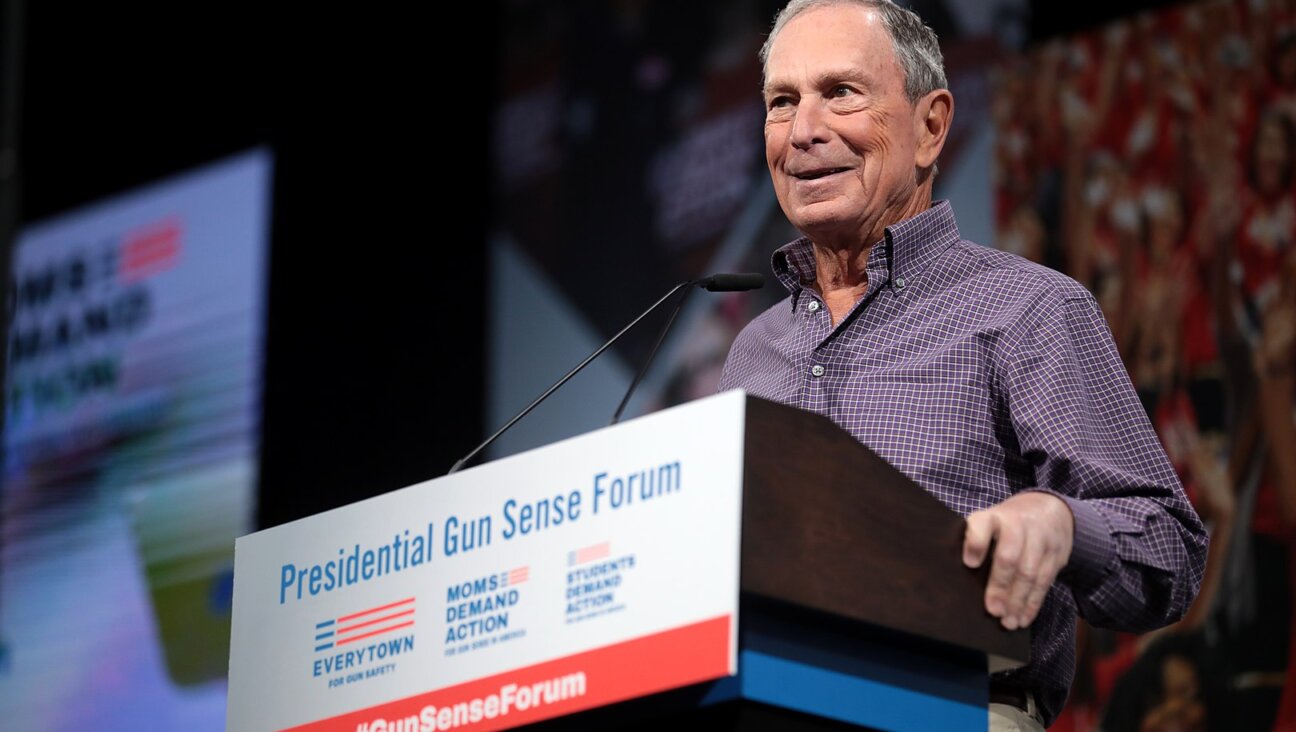Kennedy Remembered for Role in Soviet Jewry Movement
No American politician had ever personally met with refuseniks in the former Soviet Union – until U.S. Sen. Edward Kennedy.
“It was late at night, they had all gathered, he gave the driver the address and the KGB didn’t have time to stop it,” said legendary Soviet refusenik Natan Sharansky, recounting the 1974 meeting. “He was the first who broke this wall that existed.”
After Kennedy’s visit, such direct contact between American politicians and refuseniks “became normal,” Sharansky said, speaking shortly after the death Tuesday of the U.S. senator from Massachusetts.
Kennedy, who died od brain cancer at age 77, is being remembered in the Jewish community for his huge impact on domestic issues such as education and health care, but also as a giant in the Soviet Jewry movement.
Kennedy “was one of the earliest, strongest champions on behalf of Soviet Jewry,” said Mark Levin, executive director of NCSJ: Advocates on Behalf of Jews in Russia, Ukraine, the Baltic States & Eurasia. “He was always proactive and didn’t wait for NCSJ and other organizations to come to him – he was always looking to see where he could make a difference.”
Levin noted that whenever Kennedy met with Soviet officials, in Washington or in the Soviet Union, he would bring lists of those he wanted to see released. “He never forgot we were talking about individuals and families,” Levin said.
Kennedy is also being praised as a strong champion of Israel. AIPAC noted that he was a stalwart supporter of foreign aid to Israel, opposed arms sales to Jordan and Saudi Arabia in the early 1980s, and was a strong backer of recognizing Jerusalem as the capital of Israel. He also publicly rebuked President George H.W. Bush when he linked settlements to U.S. loan guarantees for the emigration of Soviet Jews, and was a leading voice in speaking out against the Arab boycott of Israel.
After Kennedy’s death, Israeli officials rushed to praise him. Prime Minister Benjamin Netanyahu called the senator “an American patriot” and “a great friend of Israel.”
Israeli President Shimon Peres said Kennedy’s death was “a very big loss to every sensitive and thinking person the world over,” adding, “Kennedy was a clear friend of Israel the whole way, and in every place that he could help us he did help.”
The late senator drew praise from a broad range of Jewish organizations, including both the Orthodox Union and the Religious Action Center of Reform Judaism. They noted that he had worked on a vast array of domestic issues over his 47 years on Capitol Hill, from religious liberty bills such as the Religious Freedom Restoration Act to his efforts on children’s health insurance.
In a statement, the president of the National Council of Jewish Women, Nancy Ratzan, said: “We were honored to work by his side on so many critical issues: Family and Medical Leave, the Lilly Ledbetter Act, the Civil Rights Act, Voting Rights, the Americans with Disability Act, hate crimes prevention, the Employment Non-Discrimination Act, the Freedom of Access to Clinic Entrances Act, health care, the increase in the minimum wage, and numerous judicial nominations – to name a few.”
RAC director Rabbi David Saperstein said that he could not think of another non-Jewish senator other than Hubert Humphrey that was “so committed to the particular Jewish agenda,” from suppport for Israel and Soviet Jewry to the vast array of social justice issues important to Jews.
“He brought those two parts of the agenda together so closely,” Saperstein said, which created “an unbreakable bond” between the senator and many in the community.
The National Jewish Democratic Council said in a statement that the “greatest tribute” to Kennedy would be to enact comprehensive health insurance reform.
“On the little stuff and the big stuff, he was always there for us,” said Nancy Kaufman, executive director of the Boston Jewish Community Relations Council. “There wasn’t an issue he wasn’t on top of.”
Beyond his work on political issues, the tales of Kennedy’s kindness and friendship are legion.
One Jewish organizational official recalled how as a young Jewish communal professional in Washington, he received a copy of a letter Kennedy had written to the national leadership of his organization, thanking them for the work he had done in the unsuccessful effort to pass the Employment Non-Discrimination Act.
Saperstein, who was befriended by Kennedy when he came to the Religious Action Center in 1973, said the senator was “supportive in good times and bad times” – Kennedy called him when his parents died and when he got married.
Steve Grossman, a longtime Boston-area Jewish and political activist and a former president of AIPAC, said that this year will be the first time in more than three decades when he won’t be receiving a call from Kennedy to wish him a “Shanah Tova.”
Every Rosh Hashanah afternoon between the end of services and Tashlich, the phone would ring and Kennedy was on the other end, Grossman said.
The senator got a kick out of being the first non-Jew each year to wish the Grossman family a happy new year.
“You could almost see through the phone the twinkle in his eye,” Grossman said.
A message from our Publisher & CEO Rachel Fishman Feddersen

I hope you appreciated this article. Before you go, I’d like to ask you to please support the Forward’s award-winning, nonprofit journalism so that we can be prepared for whatever news 2025 brings.
At a time when other newsrooms are closing or cutting back, the Forward has removed its paywall and invested additional resources to report on the ground from Israel and around the U.S. on the impact of the war, rising antisemitism and polarized discourse.
Readers like you make it all possible. Support our work by becoming a Forward Member and connect with our journalism and your community.
— Rachel Fishman Feddersen, Publisher and CEO





















